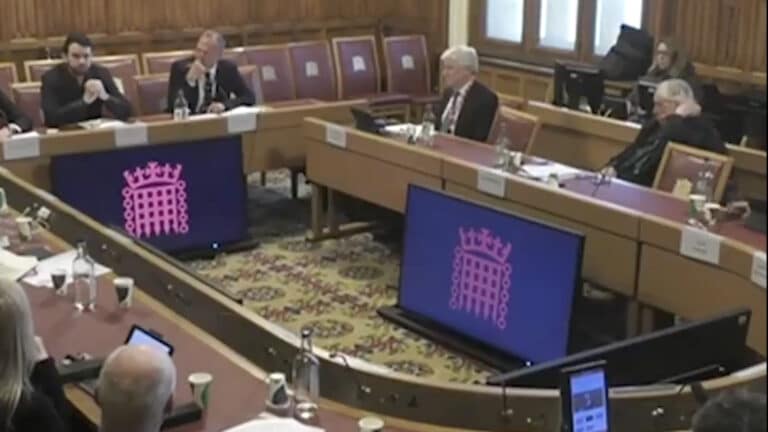The House of Lords Communications and Digital Committee has been hearing from local publishers about the current state of local journalism in the UK, and to describe the differing versions of events as ‘varied’ would probably be an understatement.
Reach chief digital publisher David Higgerson, Newsquest chief executive Henry Faure Walker and Manchester Mill founder Joshi Herrmann have been giving evidence to the committee, with Herrmann straight out of the blocks warning of “zombie newspapers” and “a disaster for democracy.”
Describing the, diplomatically anonymous, single remaining newspaper in his mother’s hometown, which was formerly home to two papers, Herrmann said: “It is effectively a zombie newspaper. It says it is about one town, but in fact it is just got content and stories from all over the country and from all over the county. So quality hasn’t been maintained. If you go on the websites of local newspapers, you will find all sorts of stories that are not journalism and they’re not local, and you’ll find so many ads covering that content that it’s very difficult to read.”
Herrmann repeatedly returned to the phrase “quality hasn’t been maintained,” citing sweeping editorial job cuts nationwide as a major cause for concern alongside his despair at websites with so many ads that reading stories becomes next to impossible, and national media giants filling their ‘local’ editions with stories from other papers in their stable from elsewhere in the country.
The publisher of the hyper-local Manchester Mill, as well as later additions to the fold in Liverpool, Birmingham and Sheffield, was also in a position to namedrop US celebrity social democrat Bernie Sanders who had popped into The Mill’s Manchester office for a chat recently and described the current pattern in local news as “a disaster for demoncracy.”
The big boys were somewhat more optimistic. Newsquest’s Walker said: “I’m more confident than I ever have been in the last 22 years about the prospects for publishers, whether that’s Joshi’s business, or my business or another start-up business in large population markets.”
Walker then turned to revenues, which her said were currently flat in 2024 after being down three per cent last year and up three per cent in 2022. He also conceded that Newsquest had laid off “a significant amount of staff, particularly in editorial over the past ten years” but noted that there had been no “meaningful” layoffs in the last three years.
The same can’t be said for Reach, which announced its latest round of cuts, around 450 jobs in total and more than 300 in editorial, last November. Higgerson insisted the remaining journalists were still on fine form, however, citing the Manchester Evening News’ coverage of the Rochdale mould case that led to the death of two-year-old Awaab Ishak as an editorial high point – that story was iniitally read by 150,000 people before picking up national traction, Higgerson said.
The Reach chief also directly addressed one of Herrmann’s criticisms about the lack of ‘local’ news in certain ‘local’ papers. Herrmann hadn’t directly aimed the criticism at Reach, although it wouldn’t take a great social media sleuth to deduce from Herrmann’s past posts that Reach’s titles may at the very least have been ‘slightly’ addressed in the analysis: “It’s very easy to pick sort of slivers of content on websites and say that’s not local news, or that’s not quality journalism,” he countered. “But pick up any local newspaper from the 80s or the 90s and you’ll see the same broad mix of content in those metro dailies as you see on our websites today.”
The local news leaders were appearing before the committee as part of a wider probe into the current state of the UK’s news media tagged ‘The future of news: impartiality, trust and technology,’ with the nationals also in attendance.
Perhaps unsurprisingly, across both national and regional news chiefs digital challenges were a prime concern, with revenues lost to big tech like Google and Meta featured, along with the ever-present threat of AI.
The Mail and the FT lined up as unlikely allies warning of the threats of copyright infrigement by AI scraping. The FT’s CCO John Slade warned that “the threat of disintermediation is really significant,” while DMG Media’s Peter Wright argued: “Make it impossible to train AI unless you have licensing arrangements and potentially you resolve the great news problem of our time by having a reliable and regular source of income for news publishers…”
Wright added: “There must be automatic penalties for people who use your content without permission.”
The committee is due to reconvene on March 5, with representatives from the BBC, ITV and Channel 4 due to give evidence.














